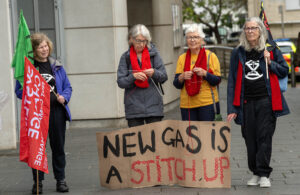Government has no clear plan to achieve net-zero, report says
The government has no clear plan to achieve net-zero emissions, according to a new report published today (September 7) by the think tank Institute for Government (IfG).
In June 2019, the government committed to cutting greenhouse gas emissions to net-zero by 2050, however, according to the report titled: ‘Net zero, how government can meet its climate change targets,’ there is still little evidence that the government has confronted the enormous scale of the challenge.
Net-zero means not just decarbonising the power sector, but also decarbonising much more difficult sectors including transport, housing and agriculture.
According to the report, in order to achieve this, the government needs a coherent plan, consistent policy and regulatory frameworks in each sector.
They must also have a clear approach to minimise the costs and allocate them fairly, the capability to make key decisions on net-zero, effective scrutiny by parliament, and a process that builds public and political consent.
The Department for Business, Energy and Industrial Strategy (BEIS) is currently responsible for developing a net-zero plan, however, the IfG has said the BEIS lacks the necessary authority over other departments.
Therefore, they have said that the cabinet office should take over responsibility for co-ordinating a plan to achieve net-zero.
The report also highlights that the treasury must also be fully on board in order to ensure that the target can be met at minimum cost and with maximum benefit to the economy.
According to the report, the UK remains a long way off achieving net-zero, predominately because it has failed to make progress in areas beyond the energy sector.
The UK’s greenhouse gas emissions have fallen by 43% since 1990, however, a large part of the UK’s apparent progress was achieved by ‘offshoring’ emissions to other countries as domestic manufacturing was reduced and the UK imported more goods from abroad.
To conclude, the authors have said: ‘Despite the rhetoric, political leadership is missing.
‘Boris Johnson has reiterated his personal commitment to net-zero, but in his actions, he has not prioritised it.
‘In October 2019, he announced that he would personally chair a new cabinet committee on climate change, however, it did not meet until 5 March 2020, three months after the election and five months after its creation.
‘Since March, the prime minister has been rightly preoccupied by responding to the coronavirus crisis. But it will be impossible to get on track for an economic transformation as enormous as net-zero if it remains only middle-ranking on the prime minister’s priority list.
Matthew Pennycook, Labour’s shadow climate change minister, commented on the report: ‘This report lays bare the Government’s failure to put the country on a path to net-zero emissions.
‘If Ministers were determined to end the UK’s contribution to global heating by mid-century they would have a clear roadmap to achieve that goal, it would be pursued relentlessly from the centre, the institutional architecture would be put in place to coordinate and drive progress across all departments, and emissions reduction would be woven throughout government policy.
‘Until this Government gives emissions reduction the status it requires and acts accordingly, the UK is destined to remain off track for the net-zero target, legislated for just over a year ago.’
Photo Credit – Pixabay















